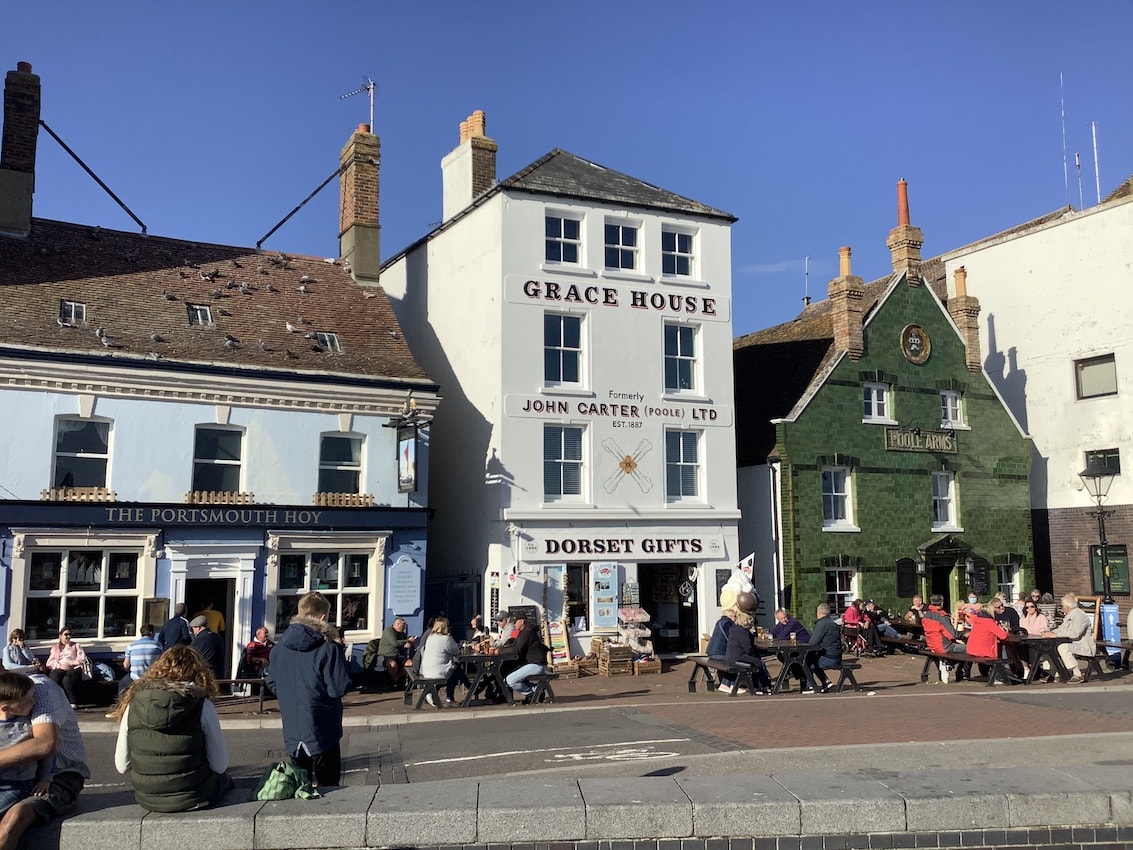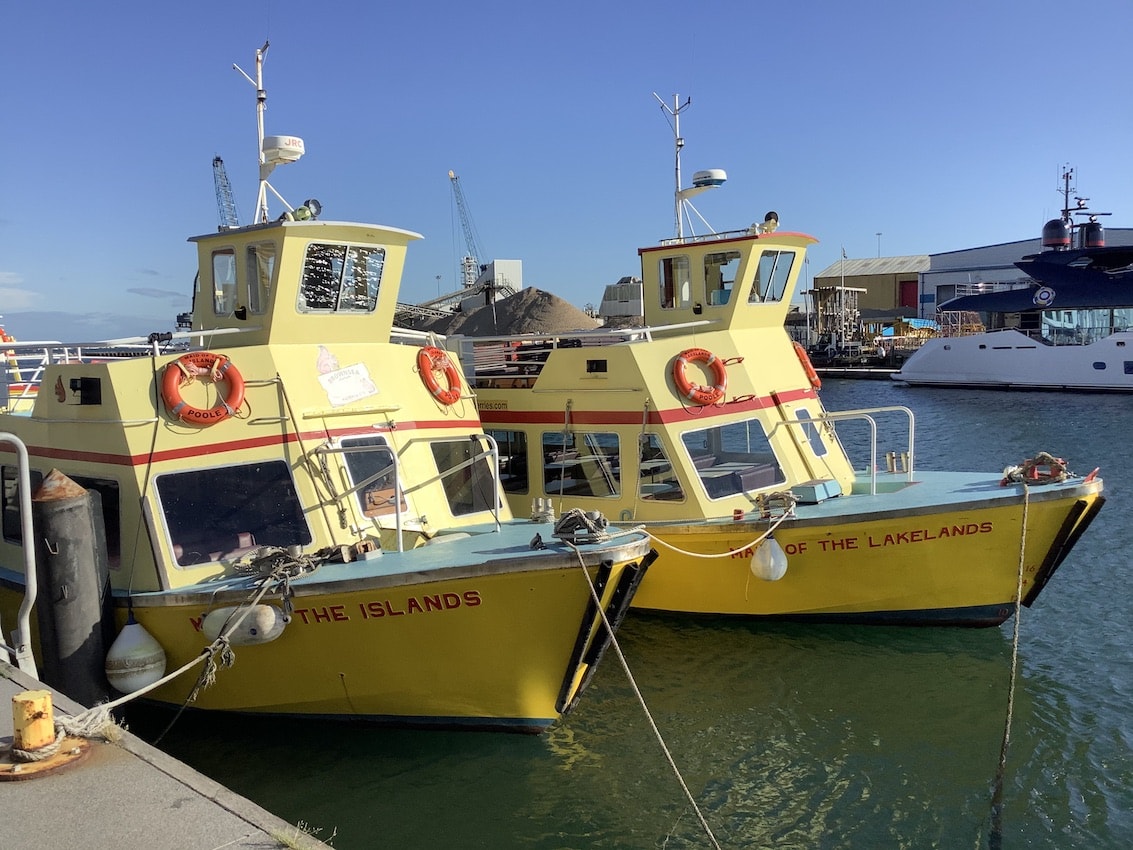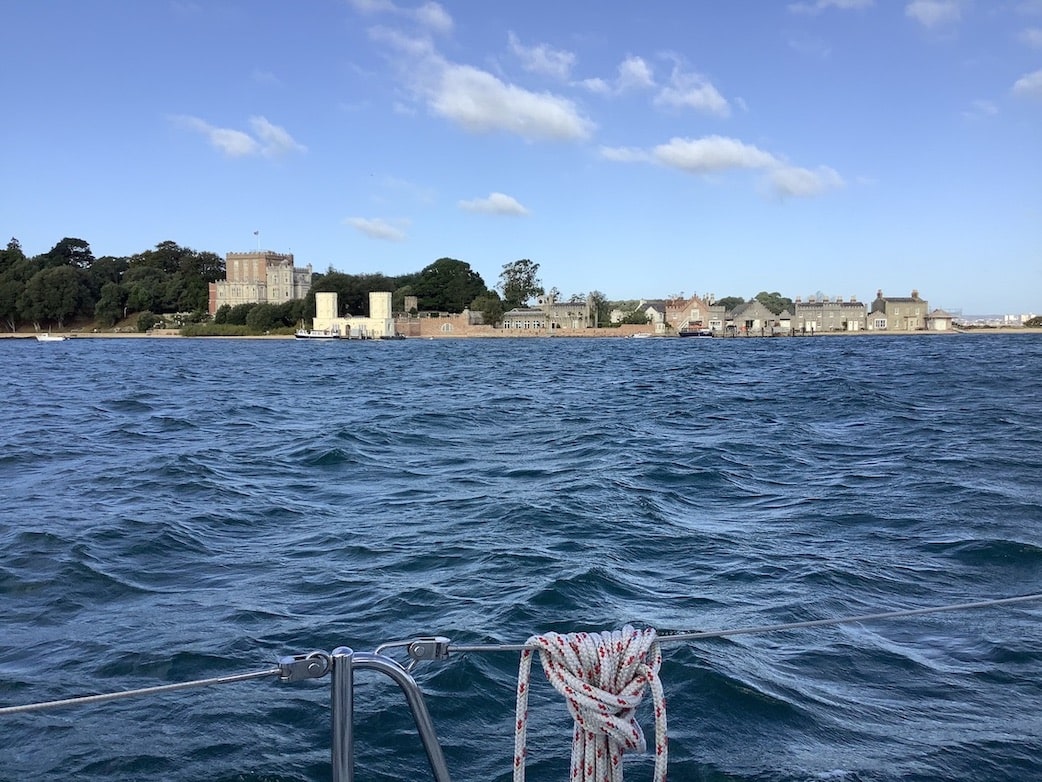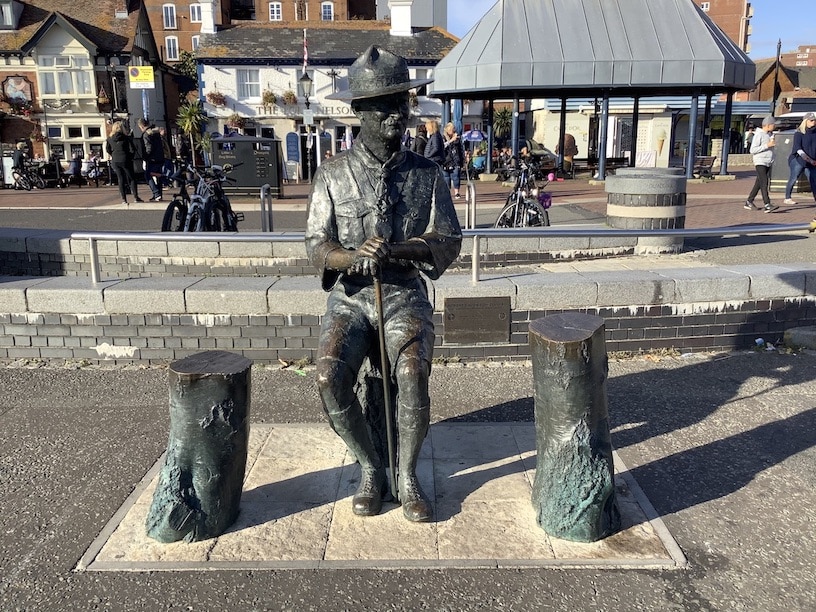Poole is a coastal town in Dorset. It is a popular tourist resort, attracting visitors with its large natural harbour and blue flag beaches. The harbour has an area of approximately 14 square miles (36 square km) and it is one of several which lay claim to the title ‘second largest natural harbour in the world’.
We stayed for a few nights in Poole Quay Marina, right next to the quayside. A perfect place to watch the world go by.

Poole Quay is very much the nerve centre of the town and was very busy on the sunny days in September when we were there.
Taking a stroll along the quayside, it was interesting to see that most of the buildings are pubs and restaurants, many right next to each other.
The green building in the photo is the Poole Arms. This is reputed to be the oldest pub in Poole with parts of it dating back to the early 17th century. The front wall is covered with tiles made by Carter’s of Poole (forerunners of the famous Poole Pottery). An acquired taste I think!
The good weather and social distancing meant that this pub, and its neighbours, were all fully booked. We had to make do with take away fish and chips on the boat.
As well as being a tourist town, Poole is a busy commercial port. It has cross Channel freight and passenger ferries and is a working harbour which is home to both fishing and pleasure boats. Tourists can chose from numerous day trips around the harbour and beyond to the Jurassic Coast.
The quay is also home to the headquarters of the Royal National Lifeboat Institution (RNLI) and all luxury performance motor yachts, Sunseeker International. Boats of all kind are in abundance….a boat spotter’s dream!

Beyond the town, there is the large natural harbour to explore. This has many inlets and islands and is full of wildlife.
The largest island is Brownsea Island. The island is owned by the National Trust and much of it is open to the public. The northern portion of the island is a nature reserve managed by the Dorset Wildlife Trust. A small portion of the southeast of the island, along with Brownses Castle is leased to the John Lewis Partnersip for use as a holiday hotel for staff and is not open to the public.
A significant event in the history of Brownsea Island took place in 1907 when the island was the location of an experimental camp organised by Baden Powell. The camp focused on camping and woodcraft and was used to try out ideas for BP’s book – Scouting for Boys. The camp is regarded as the starting point of the world wide scouting movement. BP’s links to the area are remembered by his statue of the quayside.


Wow! How beautiful! I bet it is times like this when you really appreciate your decision to ‘escape’ and explore. Continue to enjoy, especially with lovely weather like you obviously are experiencing now!
Hi Jane,
Great to hear from you. Hope all is well with you and your family.
Life is so different now…still has its stresses but the good days really do out way the bad!
x